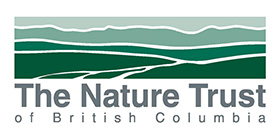PENTICTON, BC — Preventing the spread of invasive plants is motivating a dedicated group of biologists, foresters, agrologists, conservationists and members of the public to head into forested lands outside of Okanagan Falls today. They are learning more about the best ways to fight the serious threat from invasive plants.
The project is supported by the Sustainable Forestry Initiative Inc. (SFI) and the Nature Trust of British Columbia. SFI has a strong interest in invasive-plant management and has included a requirement to limit the introduction, spread and impact of invasive species in the SFI Forest Management Standard since 2005. SFI is providing funding for this project, which is being conducted on land managed by SFI Program Participants.
Invasive species have been identified as one of the three most significant threats to biodiversity in British Columbia, with the province’s interior grasslands and dry forests being the most vulnerable ecosystems. Once they invade, these non-native species cause untold and irreversible harm to the province’s economy, environment, public health and safety, and community well-being. The BC Government estimates that, given the pine beetle, wildfires, timber harvesting, and other land development and recreational activities, over 20 million hectares of Crown land are susceptible to invasion.
SFI helped initiate this project in 2011 with a focus on invasive plants that directly threaten or are likely to threaten native plant and animal communities. Led by The Nature Trust of BC, the project was established on lands managed by Weyerhaeuser Company Ltd. and Gorman Bros Lumber Ltd., which are certified to the SFI Forest Management Standard.
“Grass seeding is a commonly used practice in our industry to manage for potential erosion along road right-of-ways, but there is limited information on the effectiveness of seeding as a tool to reduce invasive plant outbreaks in forested ecosystems,” said Brian Drobe, Princeton Timberlands Planning Forester with Weyerhaeuser Company. “We are pleased to partner on this project, as the results will help us better meet our legislative responsibilities and also our requirements under the SFI Forest Management Standard.”
The project, delivered by the Okanagan and Similkameen Invasive Species Society (OASISS), endeavours to determine what grass seed mix gives the quickest way to reduce invasive plants to a threshold where they are no longer an environmental threat.
“We are testing three different combinations of grass seed at various elevations with different moisture requirements,” said Lisa Scott, OASISS Coordinator. “It’s important to provide seeding options to forestry companies, ranchers and other land managers that take regional variation into consideration.”
The results of this conservation project are anticipated to improve the implementation of SFI standards, and will also demonstrate how certification to the SFI Forest Management Standard complements existing government initiatives.
“We have long recognized the need to limit the spread of invasive species in our forest management standard. So we are pleased to work with partners on this research project. We expect the results of this research to apply through the dry forests of BC and the western US states,” said Andrew de Vries, Vice President of Conservation and Indigenous Relations at SFI.
While initial research results will be showcased during the field session, monitoring will continue for several years.
This project is one of more than 60 SFI Conservation and Community Partnerships grants awarded since 2010. Since then, SFI has provided more than $1.9 million to foster research and to pilot efforts to better inform future decisions about our forests. When leveraged with project partner contributions, that total investment exceeds $7.1 million.
EXTRA INFORMATION ON IMPACTS OF INVASIVE PLANTS:
The impacts of invasive plants in forested ecosystems are numerous. Invasive plants can: affect the survival and growth of planted conifers; accelerate soil erosion and stream sedimentation; consume critical water resources and negatively impact water quality; increase the wildfire hazard; interfere with regeneration of forests; and destroy or otherwise alter critical natural habitats required by species at risk or other high valued wildlife.
ABOUT SFI
The Sustainable Forestry Initiative® (SFI) advances sustainability through forest-focused collaborations. We are an independent, nonprofit organization that leverages four interconnected pillars of work: standards, conservation, community, and education. SFI works with the forest sector, conservation groups, academics, researchers, brand owners, resource professionals, landowners, educators, local communities, Indigenous Peoples, and governments. Collaborating with our network, we leverage SFI-certified forests and products as powerful tools to help solve sustainability challenges such as climate action, conservation of biodiversity, education of future generations, and sustainable economic development.
MEDIA CONTACT
Christine Leduc
VP, Communications and Government Relations
Sustainable Forestry Initiative
613-706-1114
media@forests.org

About Nature Trust of British Columbia
As a leading non-profit land conservation organization, The Nature Trust of British Columbia is dedicated to protecting BC’s natural diversity of plants and animals through the acquisition and management of critical habitats. Since 1971 The Nature Trust, along with our partners, has invested more than $80 million to secure over 70,000 hectares (173,000 acres) across British Columbia. The Nature Trust has been working in the South Okanagan since 1983, is a founding partner in the South Okanagan Similkameen Conservation Program, and has implemented a broad range of projects including land acquisitions, riparian fencing, and invasive plant management.
www.naturetrust.bc.ca
About Okanagan and Similkameen Invasive Species Society (OASISS)
OASISS is non-profit organization that is dedicated to working collaboratively to prevent, monitor and control the spread of invasive species in the Okanagan-Similkameen region. OASISS has been actively participating in the education, coordination and management of invasive plants in the Okanagan-Similkameen since 1996. In April 2012, the Society broadened its constitution to include the management of invasive animals. OASISS coordinates and implements an invasive plant treatment program on behalf of its partners, and also delivers public education, outreach initiatives and community stewardship programs. Current members include representatives from: local, regional, provincial and federal government; utility companies; conservation/stewardship groups; First Nations; forestry and mining companies; and cattle producer associations.
www.oasiss.ca
Media Contact
Lisa Scott
Coordinator
Okanagan and Similkameen Invasive Species Society (OASISS)
250-490-7572
oasiss@shaw.ca
